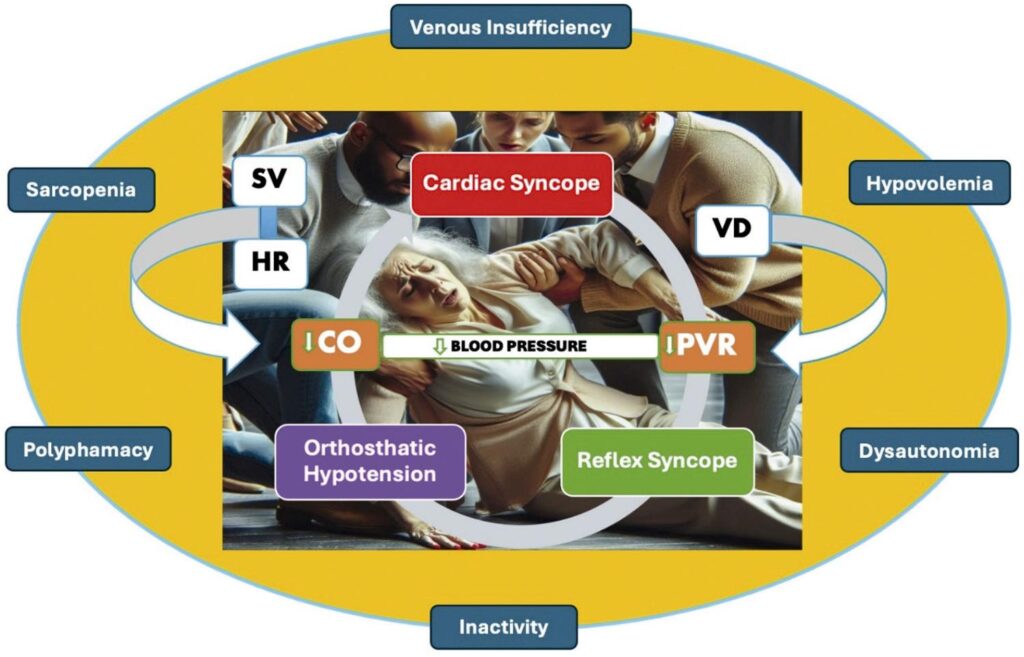International Journal of Cardiovascular Sciences. 17/Jun/2024;37:e20240076.
Assessment of Quality of Life after Diagnosis of Reflex Syncope: A Subjective Outcome of Great Clinical Importance with Multifactorial Cause
This Editorial is referred by the Research article "Quality of Life After Diagnosis of Neurally Mediated Reflex Syncope by Tilt Test".
Syncope, a clinical syndrome characterized by transient loss of consciousness (TLOC), is defined by specific elements, namely: sudden onset and rapid recovery, loss of postural tone, full recovery of consciousness, amnesia of the event, nonresponsiveness, and a typical event duration of up to 5 minutes (usually lasting seconds). The pathophysiology of syncope involves global cerebral hypoperfusion, primarily due to a drop in blood pressure (BP), with various factors contributing individually or in combination to syncope (). Even brief periods of cessation of cerebral blood flow (6–8 s) or a systolic BP of 50–60 mmHg at the level of the heart (equivalent to 30–45 mmHg at the level of the brain in the upright position) can lead to TLOC. Pathophysiological mechanisms may include a decrease in peripheral vascular resistance, cardiac output, or a decrease in both. The etiology of syncope is didactically classified into three types: 1) orthostatic hypotension (OH); 2) reflex syncope (also termed vasovagal or neurally mediated syncope); and 3) cardiac syncope.
[…]
Keywords: Vasovagal Syncope; Quality of Life; Artificial Pacemaker
437

